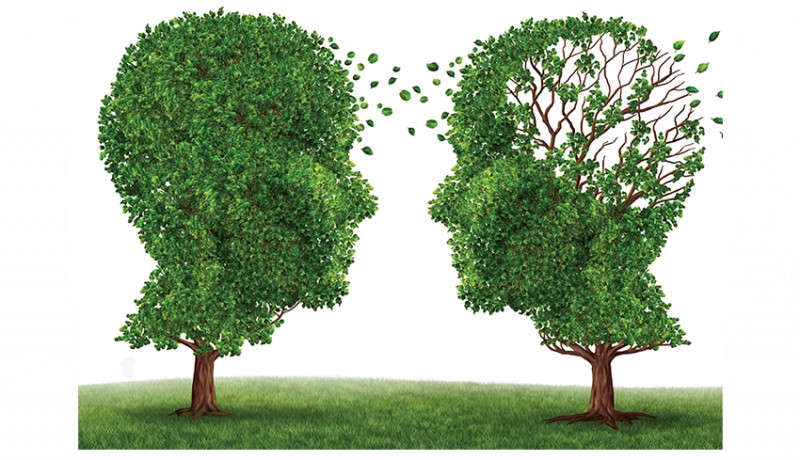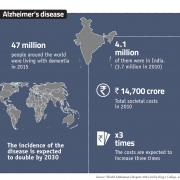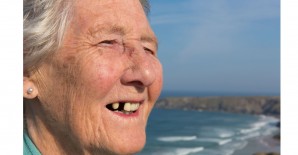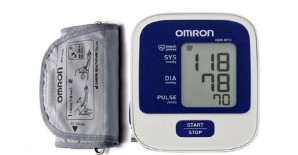
Health

Stay fit and mentally active to keep Alzheimer’s at bay, says Shivani Arora.
Good things often come at a price, and longevity is no exception. Medicine has improved life expectancy world over but that also means the longer we live, the more we have to grapple with issues such as Alzheimer’s disease. On the occasion of World Alzheimer’s Day on 21 September, we revisit this medical condition, and learn how to reduce the risk of developing it from Dr Prithika Chary, senior consultant neurologist and neurosurgeon at Kauvery Hospital, Chennai.
What is the difference between dementia and Alzheimer’s disease?
Dementia is a chronic syndrome characterised by a progressive, global deterioration in intellect including memory, learning, orientation, language, comprehension and judgement caused by degenerative, vascular and metabolic factors. It mainly affects older people; only 2 per cent of cases manifest before the age of 65. After this, prevalence doubles with every five-year increment in age. Dementia is a major cause of disability in late life.
Alzheimer’s is a type of dementia usually seen in people aged over 60. This is typically characterised by memory loss, language, behavioural and cognition issues. It is an irreversible, progressive brain disorder that slowly destroys memory and thinking skills and, eventually, the ability to carry out even the simplest of tasks.
The disease takes its name from Dr Alois Alzheimer, who, in 1906, noticed changes in the brain tissue of a woman who had died of an unusual mental illness. Her symptoms included memory loss, language problems, and unpredictable behaviour. After she died, he examined her brain and found many abnormal clumps (now called amyloid plaques) and tangled bundles of fibres (now called neurofibrillary, or tau, tangles). Today, Alzheimer’s is ranked third after heart disease and cancer as a cause of death in the elderly. What is more heartbreaking is the prolonged period of cognitive and behavioural disability that precedes it. Physical symptoms are scarce unless associated with a previous stroke or Parkinson’s disease.
What causes Alzheimer’s disease?
The cause of this disease is unknown but there are several suspected triggers. This disease seems to have a genetic basis, where the APO E4 gene is considered the basis for the disease. Also, while the disease appears to be hereditary, there is no predictable pattern. There are many risk factors that predispose one to Alzheimer’s. These include lifestyle disorders such as hypertension, diabetes and dyslipidaemia or high cholesterol levels, which can cause blood circulation problems, which in turn can further cause dementia.
Simply put, high blood pressure and uncontrolled diabetes can cause infarcts or clots in the brain, which have an impact on blood circulation. This, in turn, can cause a type of dementia called vascular dementia. Hence early diagnosis of diabetes, hypertension and dyslipidaemia are crucial to reducing one’s risk of developing this debilitating disease. Keeping one’s brain healthy also means getting the right nutrition and exercise, and avoiding smoking and alcohol abuse.
What are the early symptoms and how is it diagnosed?
Loss of smell may be an early symptom and often manifests as a lack of interest in eating food as appreciating food flavours depends a lot on the sense of smell. When an individual takes a sudden dislike to food, one should investigate further. The diagnosis is done through neuropsychological testing, where language, memory and cognitive defects are identified and an MRI is done to check for brain atrophy.
How does the disease progress?
There is a pre-symptomatic stage, where changes occur in the brain but symptoms are not seen clinically. Specialised tests like amyloid imaging can identify this stage. The next stage is mild cognitive impairment (MCI) without language or behavioural disturbances. The disease progresses in three stages: from mild to moderate, to severe. The mild stage is characterised by behavioural changes, getting lost, having problems with issues like counting money and taking longer than usual to complete daily tasks. Moderate Alzheimer’s is where the person finds it difficult to identify family members, dress properly or cope with new situations. In severe cases, the brain shuts down completely and the patient is completely dependent on other people. Towards the end, the individual is completely bedridden.
How is Alzheimer’s managed?
There is no treatment or cure for Alzheimer’s; the key is to manage the behavioural, psychological and social impact of the disease as best as possible and help the patient as much as we can. Primary among these is conserving the patient’s cognitive functions for as long as possible by games and other activities that stimulate the brain. An ongoing study of 678 nuns in the Convent of Notre Dame in Philadelphia shows that if a person remains physically and mentally active throughout their lives and into their senior years, their chances of developing Alzheimer’s disease is lower. Many of these nuns lived past a hundred and were performing quite well cognitively till their death. Interestingly, post-mortems of their brains showed evidence of neurofibrillary tangles, senile plaques and amyloid deposits indicative of Alzheimer’s although this was not clinically evident during their life.
Drug treatment may temporarily alleviate symptoms and slow the progression. One group of drugs, which includes Donepezil, Rivastigmine and Galantamine, inhibits the destruction of a neurotransmitter called acetylcholine, a deficiency of which is linked to the disease. Another group of drugs used to treat Alzheimer’s is called NMDA agonists, such as Memantine, which protect brain cells from excessive action by the neurotransmitter glutamine. Current management of this disease also focuses on dietary management using curcumin (turmeric powder) and extra virgin coconut oil, which are believed to help reduce the risk. Scientists are currently researching the possibility of a vaccine that can guard against this disease. Clinical trials are underway in the UK that focus on attacking the build-up of a protein called beta-amyloid, which forms a damaging waxy plaque on brain cells. The latest research, reported in scientific journal Nature, suggests that the drug not only removes the proteins but can restore mental functions.
Can the disease be prevented?
Yes, some research has shown that apart from working on keeping lifestyle disorders like hypertension, diabetes and high cholesterol at bay, paying attention to a few factors in life can reduce the risk of developing Alzheimer’s disease. These include regular exercise, a healthy diet, mental stimulation, quality sleep, stress management and an active social life.
CARING FOR AN ALZHEIMER’S PATIENT
Alzheimer’s is a heart-wrenching disease, especially for the family of the patient as it is characterised by progressive mental, physical and behavioural deterioration. While medicine can slow the progress of the disease, loved ones have no choice but to watch their parent, sibling or spouse waste away. A patient with this disease is almost like a baby and needs a lot of care. Some simple tips:
- Keep the home atmosphere safe as patients have issues judging steps and furniture while moving around
- Encourage them to remember as many activities as they can
- Serve food in a simple way and let them eat what they want
- Leave a night lamp on so it helps them get oriented if they wake up at night to use the washroom
- Take them for walks
- Help them with tasks so they stay active rather than take over the tasks completely
- Involve them in fun activities like puzzles or games that will help them stay happy and cheerful
- Make sure visitors are aware of their condition so the patient is not embarrassed
- Be a loving caregiver whether you are helping them bathe, dress or eat. It helps them feel better
- Join a caregiver group so you can share your experiences, seek help and make caregiving a less stressful experience for yourself
Photo: iStock Featured in Harmony — Celebrate Age Magazine September 2016
you may also like to read
-
Hot tea!
If you enjoy sipping on that steaming hot cup of tea, think twice. New research establishes a link between drinking….
-
Weight and watch
If you have stayed away from lifting weights at the gym, thinking it might not be a good idea for….
-
Toothy truth
Research has established a clear association between cognitive function and tooth loss when cognitive function score was categorised into quintiles…..
-
PRODUCT OF THE MONTH
Automatic Blood Pressure Monitor Measure your blood pressure and pulse rate with no fuss Hypertension, or high blood pressure, could….








